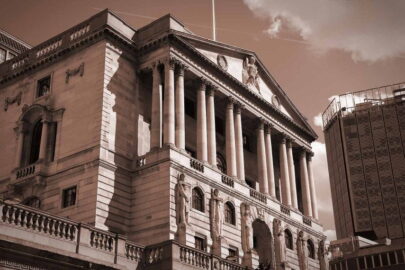The Bank of England’s Monetary Policy Committee has voted by a margin of seven to two to maintain the Bank Rate at 0.50%.
Frances Haque, Santander UK chief economist, said: “The MPC’s decision is very much as expected, with the consensus view being that the MPC will wait until May at the earliest before making any additional increases.
“The expectation of a rise in the near future is based partly on comments in the February MPC minutes, which stated that assuming the economy develops in line with the Bank of England’s inflation report, monetary policy would need to be tightened “somewhat earlier and by a somewhat greater extent” than previously anticipated in order to return inflation sustainably to the target.
“With this being the last MPC meeting before the May meeting, any speeches MPC members are due to make in the coming weeks will be watched closely for hints over the timing of the next hike. However, it’s clear that any rise will depend on how the economic news develops on inflation and growth.”
Ed Monk, associate director for Personal Investing at Fidelity International, added: “The message from the Bank of England to borrowers couldn’t really be clearer: get ready for higher rates now. Two members voted for a rate rise this month and the Bank said nothing to dispel expectations that rates will rise in May.
“The rate rise made in November felt like a straightforward reversal of the emergency post-Brexit cut, but this now feels more like we’re entering a genuine tightening phase at the Bank.
“Inflation has been above target for more than a year but it’s recent stronger wage growth that has prompted Mark Carney and the other MPC members to become more hawkish. They expect wage rises to increase and soon overtake inflation (they already have if you include bonuses). As unlikely as it may seem to struggling UK households, the Bank is worried about an overheating economy.
“If the Bank’s central case proves correct, the good news is that wages should be able to regain some lost ground as the currency-driven inflation that followed the Brexit result eases back and the benefits of a tight labour market at last translate into a pay-rise for workers. The sting in the tail will be higher costs of borrowing for indebted households.”
